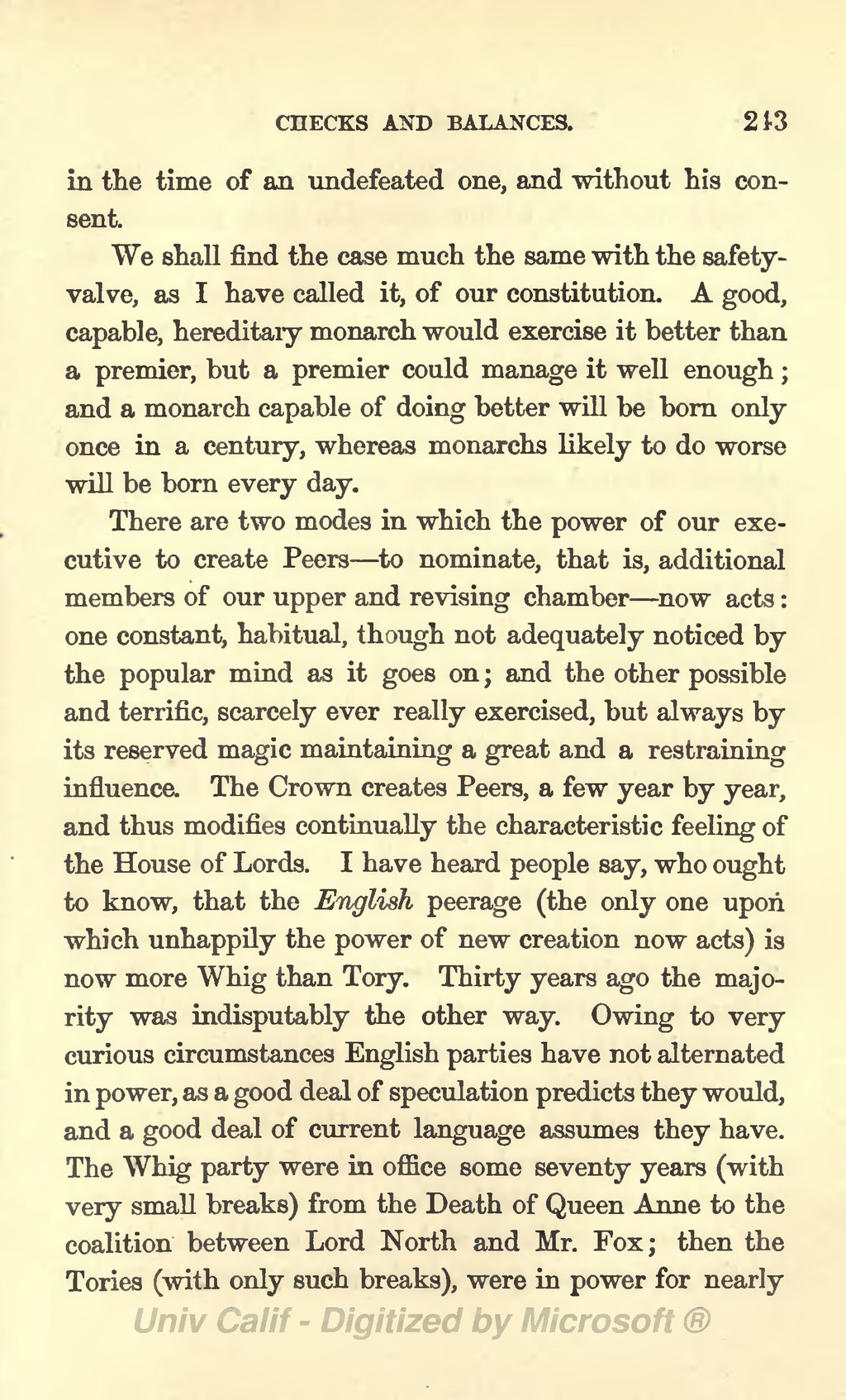in the time of an undefeated one, and without his consent.
We shall find the case much the same with the safety-valve, as I have called it, of our constitution. A good, capable, hereditary monarch would exercise it better than a premier, but a premier could manage it well enough; and a monarch capable of doing better will be born only once in a century, whereas monarchs likely to do worse will be born every day.
There are two modes in which the power of our executive to create Peers—to nominate, that is, additional members of our upper and revising chamber—now acts: one constant, habitual, though not adequately noticed by the popular mind as it goes on; and the other possible and terrific, scarcely ever really exercised, but always by its reserved magic maintaining a great and a restraining influence. The Crown creates peers, a few year by year, and thus modifies continually the characteristic feeling of the House of Lords. I have heard people say, who ought to know, that the English peerage (the only one upon which unhappily the power of new creation now acts) is now more Whig than Tory. Thirty years ago the majority was indisputably the other way. Owing to very curious circumstances English parties have not alternated in power, as a good deal of speculation predicts they would, and a good deal of current language assumes they have. The Whig party were in office some seventy years (with very small breaks) from the Death of Queen Anne to the coalition between Lord North and Mr. Fox; then the Tories (with only such breaks), were in power for nearly
